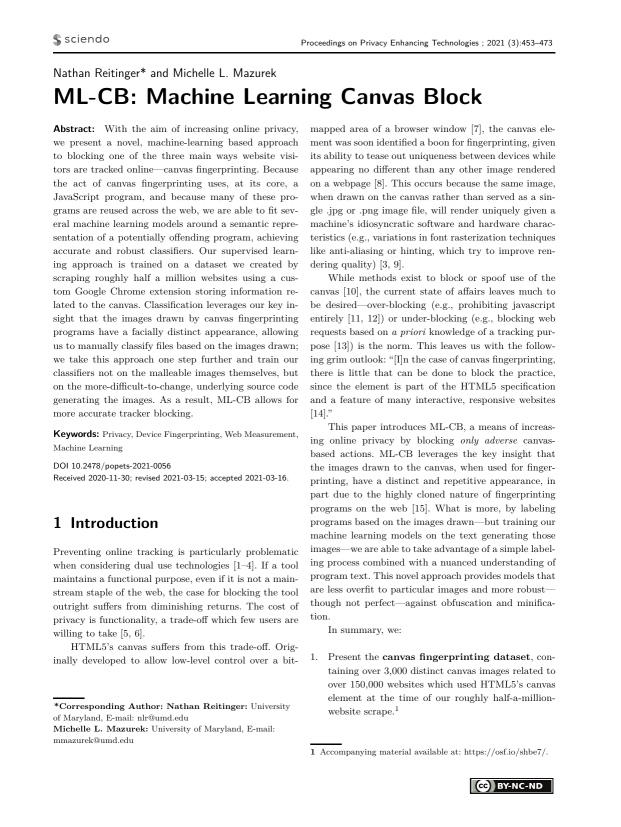ML-CB: Machine Learning Canvas Block
Authors: Nathan Reitinger (University of Maryland), Michelle L. Mazurek (University of Maryland)
Volume: 2021
Issue: 3
Pages: 453–473
DOI: https://doi.org/10.2478/popets-2021-0056
Abstract: With the aim of increasing online privacy, we present a novel, machine-learning based approach to blocking one of the three main ways website visitors are tracked online—canvas fingerprinting. Because the act of canvas fingerprinting uses, at its core, a JavaScript program, and because many of these programs are reused across the web, we are able to fit several machine learning models around a semantic representation of a potentially offending program, achieving accurate and robust classifiers. Our supervised learning approach is trained on a dataset we created by scraping roughly half a million websites using a custom Google Chrome extension storing information related to the canvas. Classification leverages our key insight that the images drawn by canvas fingerprinting programs have a facially distinct appearance, allowing us to manually classify files based on the images drawn; we take this approach one step further and train our classifiers not on the malleable images themselves, but on the more-difficult-to-change, underlying source code generating the images. As a result, ML-CB allows for more accurate tracker blocking.
Keywords: Privacy, Device Fingerprinting, Web Measurement, Machine Learning
Copyright in PoPETs articles are held by their authors. This article is published under a Creative Commons Attribution-NonCommercial-NoDerivs 3.0 license.


